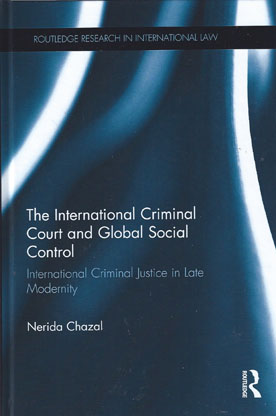
The International Criminal Court was established in 2002 to prosecute War Crimes, Crimes against Humanity and Genocide. At its genesis the ICC was expected to help prevent atrocities from arising or escalating by ending the impunity of leaders and administering punishment for the commission of international crimes.
More than a decade later, the ICC’s ability to achieve these broad aims has been questioned as the ICC has concluded only two of twenty cases and has reached only one guilty verdict. Some of the world’s major powers, including the USA, Russia and China are not members of the ICC.
This book explores the gaps, schisms and contradictions that are increasingly defining the International Criminal Court, moving beyond existing legal, international relations and political accounts of the ICC to analyze the Court from a criminological standpoint.
This analysis involves viewing the ICC as a criminal justice institution and contextualizing the aims and functions of the ICC within existing understandings of the role of crime and criminalization in an increasingly global world. The International Criminal Court and Global Social Control will be of interest to academics, researchers, and advanced practitioners in international law, international relations, criminology, and political science.